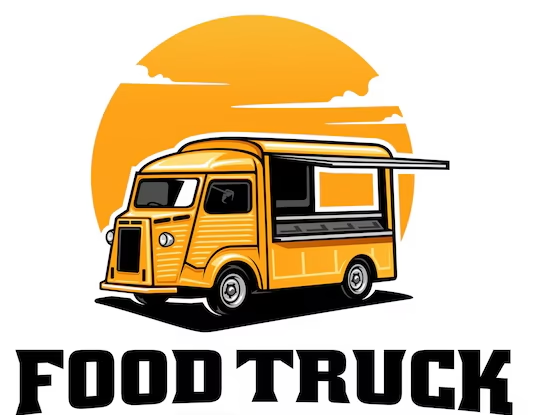Navigating the Red Tape: A Guide to Food Trailer Regulations
Dreaming of owning a food trailer andhttp://yourdesignedfoodtrailer.shop sharing your culinary creations with the world? That’s fantastic! But before you hit the road, it’s crucial to navigate the complex web of regulations that govern mobile food businesses. Ignorance is not bliss when it comes to food trailer regulations; it can lead to hefty fines, shutdowns, and even legal trouble.
Understanding and complying with all applicable regulations is essential for operating a successful and sustainable food trailer business. This guide will provide you with a comprehensive overview of the key regulatory areas you need to consider, helping you avoid costly mistakes and keep your business on the right track.
Why Understanding Food Trailer Regulations is Essential:
- Legal Compliance: Operating a food trailer without the proper permits and licenses is illegal and can result in fines and shutdowns.
- Food Safety: Regulations are in place to ensure that food is prepared and served safely, preventing foodborne illnesses.
- Public Health: Regulations protect the public from potential health hazards associated with mobile food operations.
- Business Sustainability: http://commercialtrucktrader.comCompliance with regulations helps you build a reputable and sustainable business that can operate for years to come.
- Community Relations: Following regulations demonstrates your commitment to being a responsible member of the community.
Key Regulatory Areas to Consider:
- Business Licenses and Permits: • Business License: A general business license is required to operate any type of business, including a food trailer.
• Food Service Permit: A food service permit is required to prepare and serve food to the public. This typically involves inspections of your trailer and food handling practices.
• Mobile Food Vendor Permit: A specific permit for operating a mobile food business.
• Seller’s Permit/Sales Tax Permit: Required to collect and remit sales tax on your food sales.
• Employer Identification Number (EIN): If you have employees, you’ll need an EIN from the IRS. - Health Department Regulations: • Food Handling Practices: Regulations on proper food storage temperatures, cooking temperatures, cooling procedures, and handwashing.
• Equipment Sanitation: Requirements for cleaning and sanitizing equipment and utensils.
• Water Source: Regulations on the source and quality of water used for cooking and cleaning.
• Waste Disposal: Proper disposal of grease, food waste, and wastewater.
• Employee Health and Hygiene: Requirements for employee health screenings and hygiene practices. - Fire Safety Regulations: • Fire Extinguishers: Requirement for a Class K fire extinguisher for grease fires.
• Fire Suppression System: Many jurisdictions require a commercial-grade fire suppression system.
• Ventilation: Proper ventilation to remove smoke and heat from the trailer.
• Propane Gas Safety: Regulations for the safe storage and handling of propane gas. - Zoning Regulations: • Operating Locations: Zoning regulations may restrict where you can operate your food trailer.
• Hours of Operation: Zoning regulations may limit your hours of operation.
• Parking Restrictions: Regulations on where you can park your food trailer.
• Signage: Regulations on the size and type of signage you can display on your trailer. - Accessibility Regulations: • ADA Compliance: Ensure that your trailer is accessible to people with disabilities, as required by the Americans with Disabilities Act (ADA). This may include ramps, accessible counters, and accessible restrooms (if you provide on-site restrooms).
- Labor Laws: • Minimum Wage: Comply with federal and state minimum wage laws.
• Overtime Pay: Pay employees overtime for hours worked over 40 in a workweek. - • Employee Benefits: Provide required employee benefits, such as workers’ compensation insurance.
Steps to Ensure Compliance:
- Research Local Regulations: Contact your local city and county government to determine the specific regulations that apply to food trailers in your area.
- Contact the Health Department: Speak with a representative from the health department to understand the food safety requirements for your business.
- Meet with the Fire Department: Discuss fire safety regulations with a representative from the fire department.
- Consult with a Zoning Official: Speak with a zoning official to understand the zoning regulations that apply to your business.
- Obtain the Necessary Permits and Licenses: Apply for and obtain all required permits and licenses before you start operating.
- Develop a HACCP Plan: Create a Hazard Analysis and Critical Control Points (HACCP) plan to identify and control potential food safety hazards.
- Train Your Staff: Train your staff on proper food handling practices, safety procedures, and customer service.
- Stay Updated:http://ebay.com Regulations can change, so stay informed of any updates or revisions.
Resources for Finding Regulations:
- Your Local City and County Government Websites: These websites typically have information on business licenses, permits, zoning regulations, and other local laws.
- Your State Health Department Website: The health department website will have information on food safety regulations.
- The Small Business Administration (SBA):http://craigslist.org The SBA provides resources and assistance to small businesses, including information on regulations.
- Industry Associations: Food trailer industry associations can provide valuable information on regulations and best practices.
The Bottom Line:
Navigating the complex world of food trailer regulations can be challenging, but it’s essential for the success and sustainability of your business. By taking the time to understand and comply with all applicable regulations, you can avoid costly mistakes, protect your customers, and build a thriving mobile food business that is a valuable asset to your community.

